This is a change in the frequency of a trait in a population over time.
What is evolution?
Comparing and contrasting these, of differing ages, allows scientists to analyze evolutionary changes in the anatomy of organisms.
What are fossils?
What happened to the beak size of the Galapagos finches after the drought? Why?
The average beak sizes became larger. Smaller seeds became rare, but there was still an abundance of large seeds.
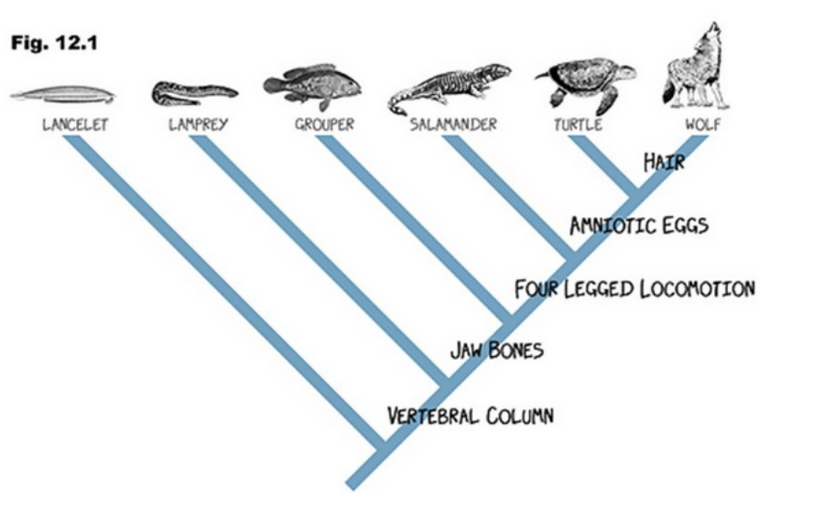
This image is called what?
What is a cladogram?
Charles Darwin is considered the father of this important theory of biology.
What is the theory of evolution by natural selection?
This describes how traits are passed on from parents to offspring.
What is inheritance?
The pattern of arm bones (one bone, two bones, lots of little bones) in humans, whales, and dogs is an example of these kinds of structures.
What are homologous structures?
What happened to the beak size of the Galapagos finches after the flood? Why?
The average beak size became smaller. Now, the smaller seeds were more common than the large seeds.
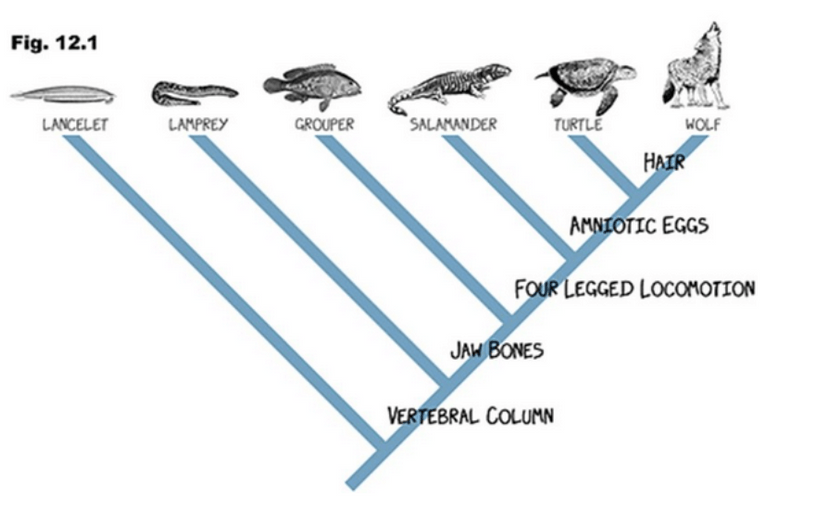
What is the most recent common ancestor of the grouper and the turtle?
What is the lamprey?
Charles Darwin studied this organism extensively when studying evolution.
What are the Galapagos finches?
This describes when the individuals in a population differ in some trait.
What is variation?
Bird wings, bat wings, and butterfly wings are examples of these types of structures, which have similar functions but do not come from a common ancestor.
What are analogous structures?
What caused the change in the color of the rock pocket mouse's fur? (Think DNA).
A mutation in the gene coding for fur color was favored in their specific environment.
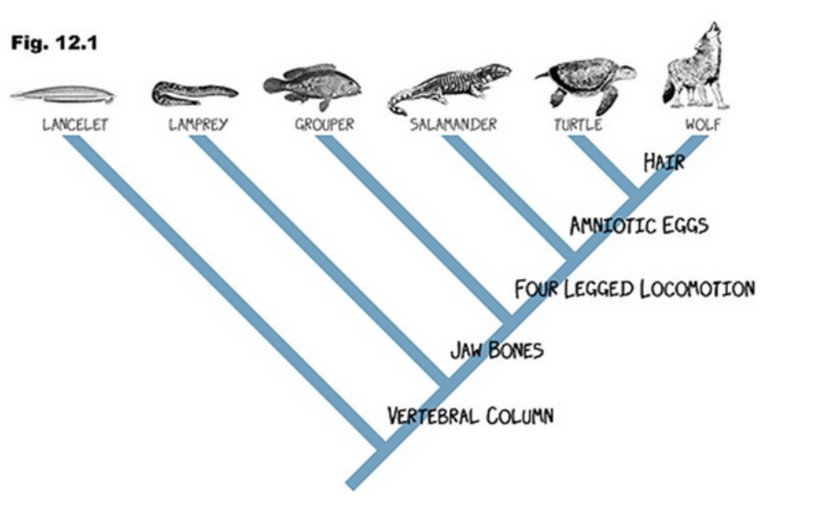
Which organism has a vertebral column, jaw bones, and four legged locomotion, but does not have amniotic eggs?
What is the salamander?
This occurs when a species cannot adapt to its changing environment.
What is extinction?
This occurs when organisms better adapted to their environment tend to survive longer and produce more offspring.
What is natural selection?
The human tailbone is an example of this kind of structure, one that seems to have no or little function.
What is a vestigial structure?
Why did the pocket mice with dark-colored fur have higher survival rates than the pocket mice with light-colored fur?
They were better able to camouflage against the lava rocks.
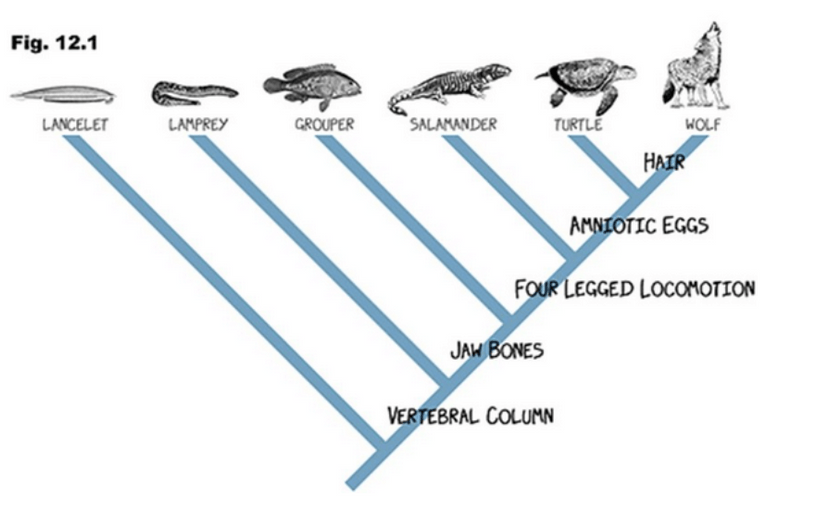
Which organism is most closely related to the wolf?
What is the turtle?
This is the formation of new species.
What is speciation?
This occurs when some individuals with a specific trait are more likely to survive than individuals without that trait.
What is differential survival?
With modern scientific advancements, we can now analyze this to compare the genetic code of different species.
What is DNA?
True or False
Since tuskless elephants are less likely to be killed by poachers than elephants with tusks and more likely to reproduce, they satisfy the inheritance condition of evolution.
False! But they do satisfy the differential survival and reproduction condition.
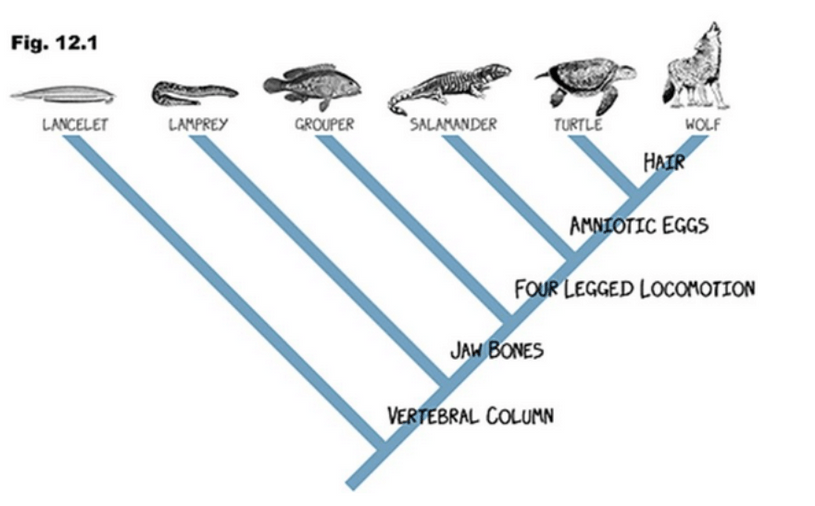
Which pair of species has the most recent common ancestor?
Wolf and Salamander
Turtle and Lancelet
Salamander and Lamprey
or Wolf and Grouper
What are wolf and salamander?
Pointer dogs, which are used to point hunters toward game birds, were created by humans intentionally breeding dogs with the 'pointing' trait together. This is an example of what type of selection?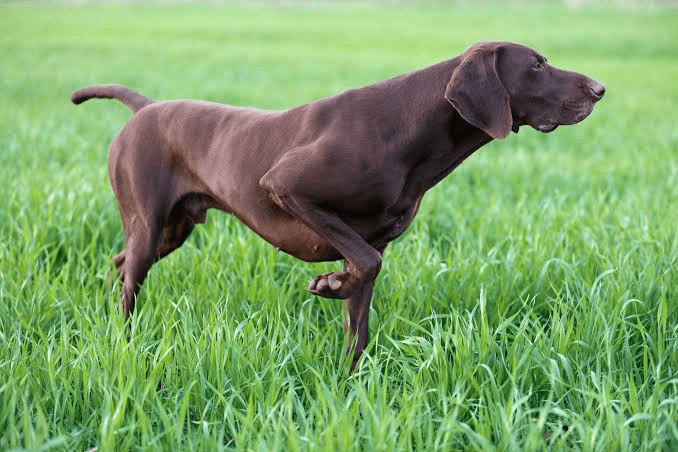
What is artifical selection?